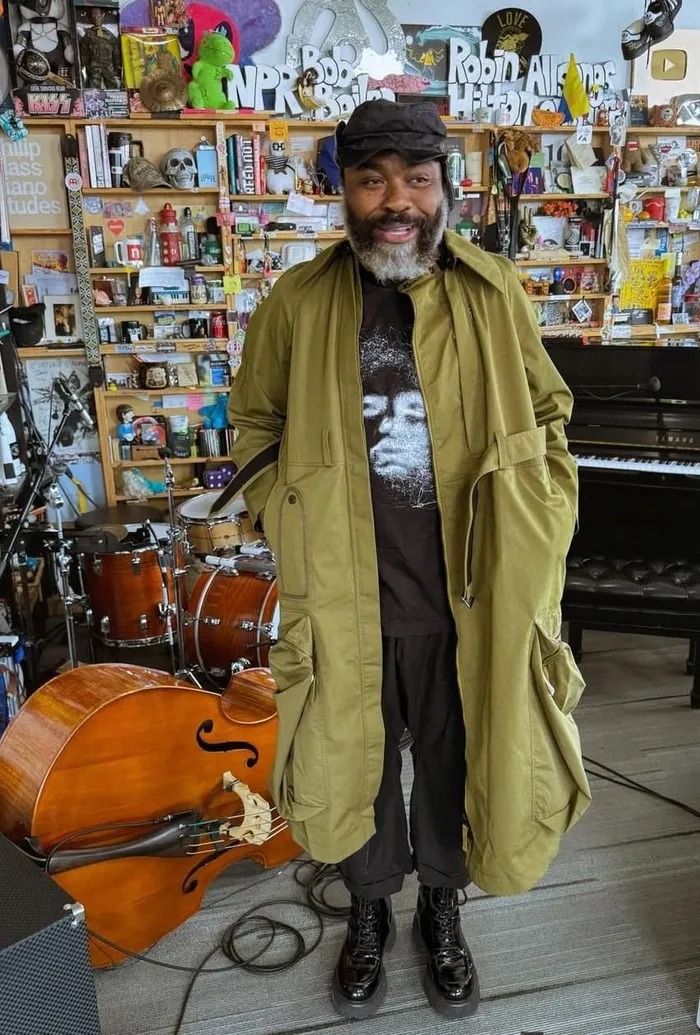Nduduzo Makhathini's 'Tiny Desk Concert': a soulful journey through Black aesthetics

South African jazz maestro Nduduzo Makhathini captivates audiences on NPR’s iconic ‘Tiny Desk Concert’ stage.
Image: Instagram
South African jazz musician Nduduzo Makhathini recently performed on NPR’s “Tiny Desk Concert” series.
Known for its intimate set-up in Washington, DC, the series showcases live music in a casual atmosphere where artists can connect with audiences.
Makhathini took to the tiny stage accompanied by bassist Zwelakhe-Duma Bell le Pere and drummer Kabelo Mokhatla.
The trio delivered stripped-down versions of Makhathini's profound ancestral invocations and meditative pieces in a captivating 20-minute set titled "Ntu Sonicities Devotion Suite in Five Movements".
Each piece focused on concepts such as meditation, identity and victory.
The performance featured five distinct segments: "Kuzodlula", which revolves around the idea of stillness, "Omnyama", which explores the depth of Blackness through the lens of African deities, "Equidistant Passage", a reflection on Black aesthetics, "Izinkonjana", a song highlighting grace and transcendence and "Imvunge", a celebration of victory.
During the concert, Makhathini shared insights into his selection of songs.
"It is truly a blessing for us to share this music and the stories that are intrinsic to the music, to the sound and of course this enunciates, as part of a bigger project, of what we think of as Black aesthetics and the peculiarities of such a subject, in a sense that Black aesthetics can escape the idea of Black biography, and so the sounds that we play are everything that we are, we were before and to become in the future," he said.
Central to his performance were three key themes: rituals, ongoing rehearsals and material for study.
Makhathini described rituals as a way to explore what occurs in moments of transition, highlighting transcendence over a history filled with hardship.
"One is ritual, and the idea of ritual really allows us to think about what happens in between this idea of liminality. It allows us to think about transcendences, as this thing that lifts from all of this catastrophic history, so what really lives when all of this has happened."
"The other subject I've been working with is what I call an 'ongoing rehearsal', and this really goes against the idea of a rehearsal as a practice to seek perfection, but a rehearsal as recurring moments of knowing that it is impossible, but doing it anyway. So rehearsal as a space for emptying as apposed to that of acquiring."
Lastly, he spoke about "material for study," which allows for reflection on knowledge.
"It produces ways for us to reflect and think about study really is and study in this context, unlike the conventional way, where we think of study as a base where we are acquiring knowledge, but this is a space where we are rehearsing knowledge and are willing to give it up anytime."
"So it's a modality of surrender study as a mode for emptying, so these are some of the things I intrinsic in the sound and the rest of it is really invocations of our ancestral lines and the things that live in us."
So far, the episode has racked up close to 80,000 views in just two days.
Watch Makhathini's performance below:
Related Topics: